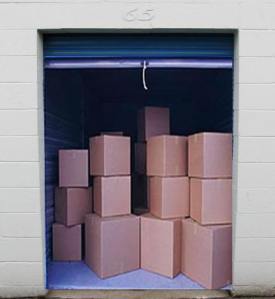What Everyone Should Know About Insuring Property In Storage
 The other day while flipping through the channels I stumbled upon a reality show about people who bid on items in abandoned storage units- sometimes finding items valued in the tens of thousands of dollars. I thought of my family and friends who had storage units and the kinds of items they kept in there- and it ran the gamut from golf clubs to furniture to ski equipment. According to the Self Storage Association, 10.8 million people in the US rent a self-storage unit. If you’re one of those 10.8 million people you should ask yourself, do I have insurance coverage for my property in storage?
The other day while flipping through the channels I stumbled upon a reality show about people who bid on items in abandoned storage units- sometimes finding items valued in the tens of thousands of dollars. I thought of my family and friends who had storage units and the kinds of items they kept in there- and it ran the gamut from golf clubs to furniture to ski equipment. According to the Self Storage Association, 10.8 million people in the US rent a self-storage unit. If you’re one of those 10.8 million people you should ask yourself, do I have insurance coverage for my property in storage?
Would Your Homeowners Insurance Cover it?
A standard homeowners or renters insurance policy provides you with protection for personal property you own anywhere in the world- so the good news is that if you have homeowners or renters insurance, it would apply to those items you own in a storage facility, but not in the same way it would to items kept in your home. It’s important to know though that items in a storage facility are not covered the same way as items in your house. Depending on the policy forms used by your insurance company, your property that’s kept in a storage unit may only be covered up to 10% of the amount of coverage in your policy- known as the coverage limit- so if you have a $250,000 limit in your homeowners policy, items in a rented storage unit would only be covered up to $25,000. Check with your independent insurance agent to be sure. A comprehensive home inventory can help you determine the coverage limits you need to protect your belongings, whether on your own premises or at a self-storage facility.
Where there wouldn’t be coverage under the homeowners or renters policies is if you were storing a vehicle. For the most part, motor vehicles- from cars, to, ATVs, and motorcycles- are not covered by a homeowners insurance policy and would require that you insure them separately. A few exceptions to this would be a car in dead storage, anything that is used to service your residence- like a riding lawn mower or a vehicle designed to assist disabled persons, but these would only be covered to 10% of the property limit. If you’re using a storage facility to keep a motorcycle, dirt bike or car, make sure you check with your agent to determine whether you’ll need a separate policy for it.
Some people use storage units for collections- from art to antique furniture. Any special collections, whether in your home or in a storage unit- may need a separate policy no matter what to make sure you have coverage for them. Your agent can offer you a special policy to cover fine arts and collectibles, from paintings to record collections.
Watch what you store
If you do rent a self-storage unit, be sure to check with the company renting you the about any restrictions on items you can store. Often chemicals such as cleaners and solvents, paint, gasoline or motor oil and other combustibles are not allowed to be stored. Not only would keeping these items in a storage unit possibly void your rental agreement, but they could pose a significant liability risk to you if they caused a fire. A February 2012 fire in a storage unit in Georgia destroyed 200 units including one that contained memorabilia from the film Gone with the Wind with an estimated value of $200,000. Many homeowners policies will limit your liability coverage to only $100,000, so a personal umbrella policy might be a good idea to provide additional coverage over what’s in the standard policy.
While your homeowners or renters insurance should provide you with coverage in the event you are found legally liable for injury or property damage at a storage facility where you’re renting a unit, if you plan on renting the unit long term you should talk with your Trusted Choice agent about adding the rental location to your policy as an additional insured location to avoid any confusion over whether you’re covered.
The bottom line
The bottom line is that if you have homeowners or renters insurance and you’re following the rules of the storage facility and let your agent know exactly what kinds of items you’ll be putting in a storage unit, you can be covered in most cases by a standard homeowners or renters insurance policy, and in the event you need to store something like an ATV or a record collection, coverage is easily obtained, so even if it’s in storage and out of sight, you’ll have peace of mind.
Recent Comments